The Macau Disturbance
(The Standard) Shots fired in Macau rally. By Damon Pang and Agencies. May 2, 2007.
Macau police fired at least five shots into the air Tuesday in one of the most violent rallies seen in the former Portuguese enclave since the handover in 1999, witnesses said. A labor demonstration demanding tougher laws against illegal workers entering Macau erupted into a series of violent scuffles.Acting security police chief Lei Sio- peng said one officer fired blank shots. "The officer fired the shots with the aim of dispersing the crowd as he saw some people starting to fall and feared they could trample each other. We see that as a justified reason [to fire shots]," he said.
However, democratic lawmaker Au Kam-san, who took part in the march, disagreed, saying the shooting was "absolutely inappropriate." "The demonstrators carried only a few water bottles. They definitely did not pose a threat to the officer's safety. We may pursue this incident." According to Au, the demonstrators were mostly grassroots laborers, including construction and casino workers, as well as the jobless.
Another lawmaker, Jose Pereira Coutinho, who witnessed the shooting, said it was an unnecessary use of force and only served to inflame passions. "The shots were fired without warning. It was pure luck that no one was hurt," Coutinho said, adding the shots fired were not blanks.
...
The march started from northern Macau around 2pm with demonstrators waving banners and chanting slogans calling for the resignation of Macau Chief Executive Edmund Ho Hau-wah. Organizers said there were 10,000 workers in the march. Police put their number at only 2,500. The marchers also stopped outside a mortuary where preparations were underway for the funeral of Ho Hao- chio, a brother of Edmund Ho, chanting more slogans against the chief executive. "We have been forced by the government to revolt," shouted one demonstrator. Chaos broke out when the marchers reached the crossroads of Avenida do Coronel Mesquita and Avenida do Almirante Lacerda, where they argued with police over the route of the march. Several dozen demonstrators then threw water bottles. Police responded with batons, dogs and pepper spray against demonstrators who broke through two of three police lines. Several demonstrators were forced to the ground by police before being escorted away with their arms and legs tied, according to witnesses.
...
At about 7pm, riot police took action to disperse the few hundred demonstrators who continued to gather around Avenida Marginal do Patane, near a wet market. Blowing whistles, they forced the demonstrators into alleys and cleared the scene by 8pm.
...
Macau, with a population of 513,000, saw its GDP per capita soar 16.6 percent last year, compared with rises of 28.4 and 6.9 percent respectively in 2004 and 2005, according to government figures. The unemployment rate dropped to 3.8 percent in 2006, compared with 6.3 percent in 1999.
Macau has suffered a severe labor shortage in recent years as some of the world's wealthiest casino tycoons and companies - including MGM Mirage, Steve Wynn and Las Vegas Sands - charged into the market to build massive casino resorts, convention centers and shopping malls. However, the workers at Tuesday's protest complained many employers hired cheap illegal laborers from the mainland and that the government was turning a blind eye to the practice. They said the flood of illegal workers had, in turn, lowered their wages, preventing them from enjoying the fruits of the economic boom. Some protesters carried signs saying, "Severely punish employers of black-market workers." "There is serious collusion between the government and big business," said protester Leung Chi-keung, 55, a construction worker.
Lawmaker Antonio Ng said the local building boom had not benefited local workers. "Those in the construction industry should have been prosperous by now with so many casino projects. But the oversupply of foreign workers has forced locals into temporary jobs," he said.
But here is the alternate reading of the situation by The Sun. [Note: This does not mean that this is the 'correct' reading. The point here is to show that there are all manners of readings across the spectrum of Chinese-language newspapers in Hong Kong. By the way, newspapers such as The Sun, Oriental Day and Apple Daily are readily available at newstands in Macau.]
[in translation]
After a large-scale police-civilian clash last year on May 1st in Macau, another anti-government march at noon yesterday triggered an even more serious incident. Several thousand marchers ignored police advice and charged at the police cordon that separated the march route from the tourist district. After numerous warnings, five shots were fired into the air. A citizen on his way home about 1,000 feet away was believed to have been hit by a stray bullet. Scholars wondered if certain of the protestors had "ulterior motives." Macau government insiders do not exclude the possiblity that there are political motives behind the clashes, or even that third party powers are inflaming individual protestors in order to destroy the prosperity of Macau and challenge the implementation of "One Country Two Systems" in Macau.
The march consisted of many organizations which assembled at Laohan Park at 1pm. The march began at 230pm and some protestors held banners that read: "Down with Edmond Ho." The government estimated that the number of marchers yesterday at 2,400. Since the groups that called the march refused to compromise and insisted that the march must go through the tourist district (Avenida de de Almeida Ribeiro), the police sent out about 800 police officers to maintain order.
The marchers chanted anti-government slogans on the way. At first, the atmosphere was relatively peaceful. When they reached the funeral home where services were being prepared Edmond Ho's brother, somebody wanted to bring anti-Ho photographs into the memorial hall and also left large amounts of "ghost paper money" outside in the street. Some of the funeral wreaths outside the funeral home were toppled.
The marchers then clashed with the police about 100 meters away from the funeral home. The demonstrators threw water bottles and miscellaneous objects at the police. Some people faced off with the police with wooden poles. The police sent in police dog squads and anti-riot police teams. During the chaos, some of the demonstrators fell down.
After numerous warnings were ignored, a police officer took out a gun and fired five times into the air. Many over-excited demonstrators were arrested. The police then broken up the march formation and successfully controlled the scene. The police completed clearing the scene at 8pm and dispersed the demonstrators.
According to informed Macau government sources, the senior leaders were aware that the demonstrators had "ulterior motives" and anticipated that excessive action would take place. Therefore, they had made plans beforehand, such as when to use police batons, pepper spray or warning shots if the warnings should go unheeded. They were prepared to prevent the demonstrators from breaking into the tourist and business districts and endanger the tens of thousands of tourists present on the first day of the May 1st Golden Week.
The Macau police explained later that some old women had fallen down during the chaos and the situation was nearly out of control. The shots were fired into the air in order to prevent a mass trampling incident.
Senior Macau government sources said that the people's livelihood has been improving during the eight years after Macau's return to China. Last year, the per capital GDP was as high as $227,000 and surpassed Hong Kong for the first time and the economy grew by more than 15%. The unemployment rate for the first quarter was a new ten-year low. Therefore, senior government officials are concrened about the appearance of a large-scale anti-government march and they do not exclude the possibility of interference by newly rising powers or foreign powers.
According to the sources, the government observed that many demonstrators targeted Chief Executive Edmond Ho and challenged the administrative standing of the Macau SAR government and its Chief Executive. This may therefore involve a new division of powers in Macau, or else using the Basic Law Article 23 legislation to influence the Third Macau SAR Chief Executive election, or even to damange the image of the implementation of "One County Two Systems" in Macau, or some other complex factors.
Political scientist James Sung of City University of Hong Kong pointed out that the protestors had insisted on entering the Avenida de de Almeida Ribeiro and publicized beforehand that there would be clashes. Thus, the possibility cannot be excluded that forces in the gaming industry are attempting to re-configure the division of interests through pressure on the government obtained by inciting the workers to clash with the police. In addition, the Macau government had been going after the triad gangs since the return and those aggrieved gangsters will attempt to create an incident to express their discontent. Sung also claimed that the relationship between Macau and Taiwan has been subtle and much more complicated than outsiders think.
Sung said that the outside world appeared to have a good opinion about Edmond Ho because he was good at balancing the various interests. But this clash showed that the situation in Macau is far more complicated than previously imagined. Two years from now, the successor to Edmond Ho will still need to deal with balancing the various interests.
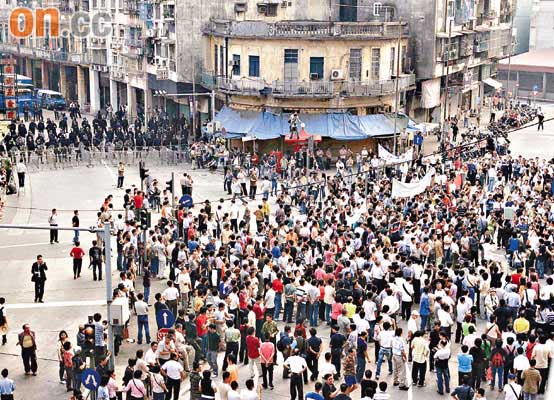
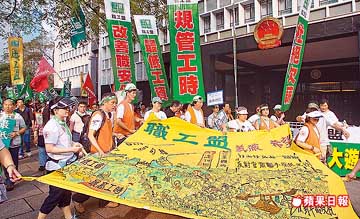

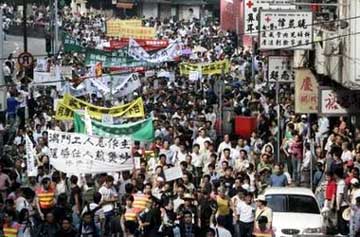
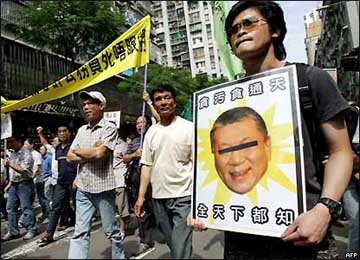
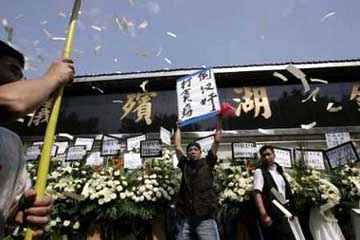
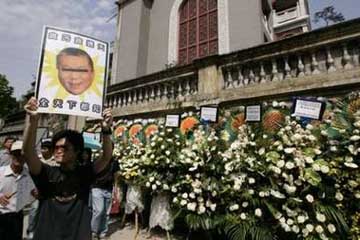
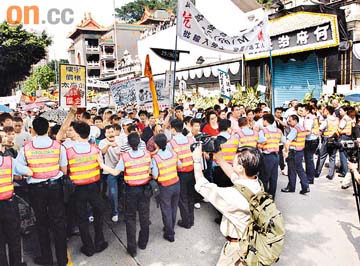

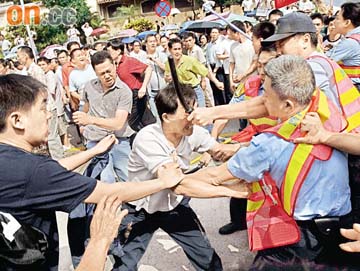
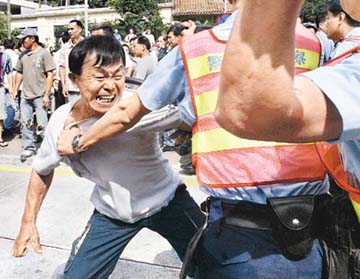

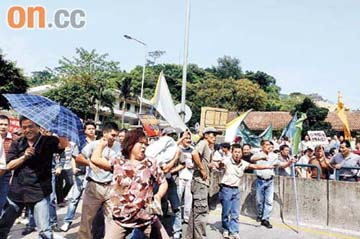
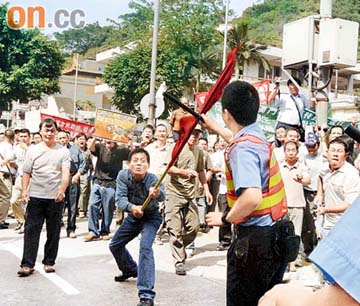
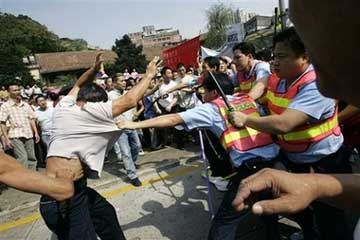

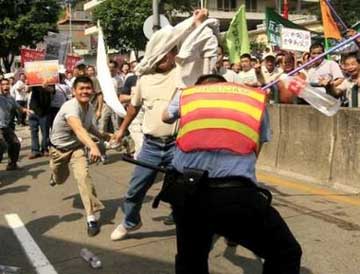
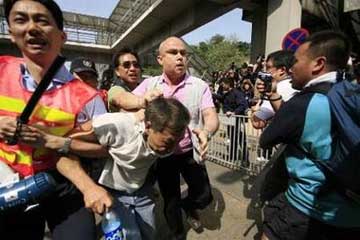
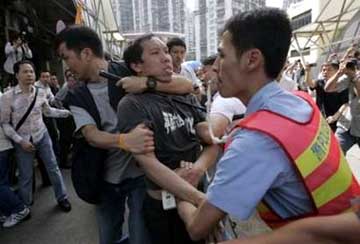
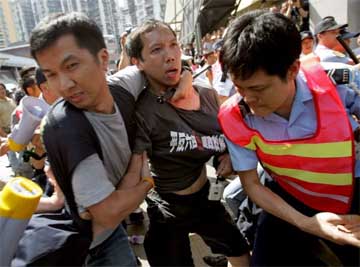
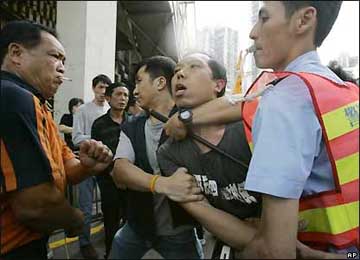
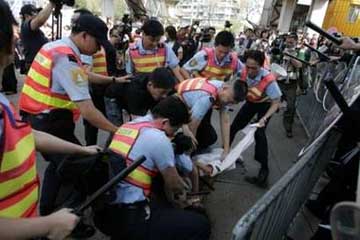
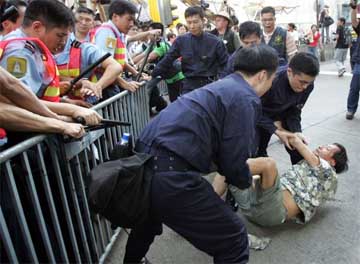
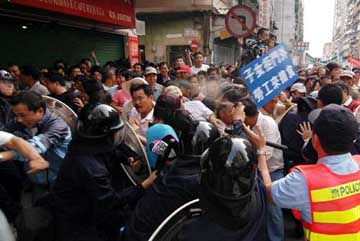
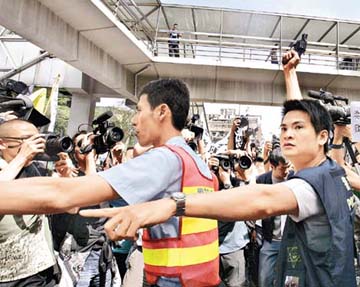

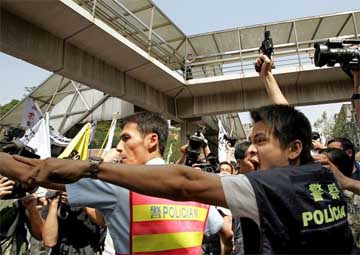
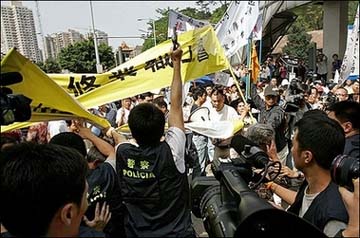
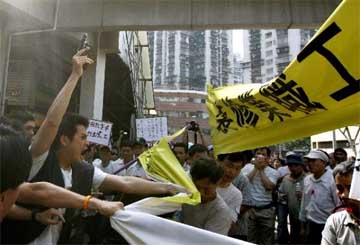
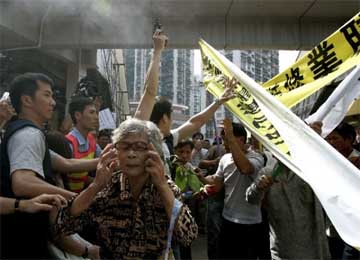
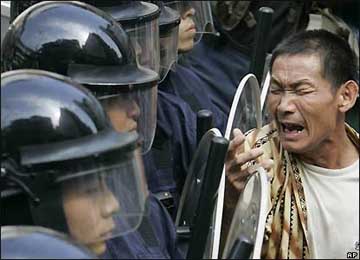
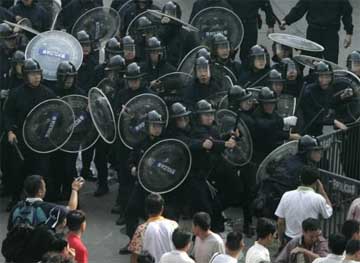
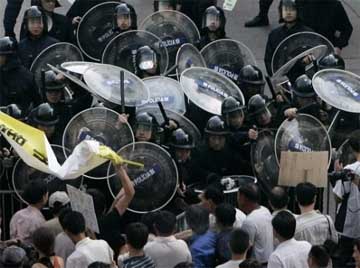
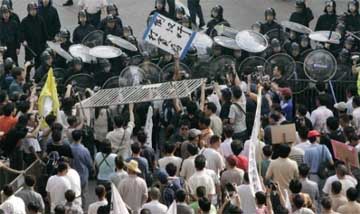


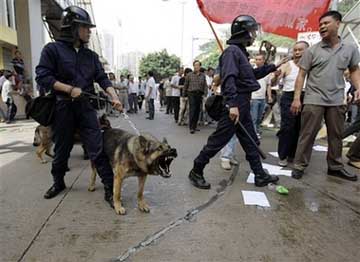
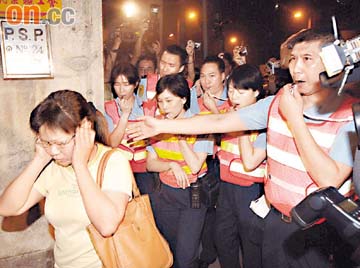
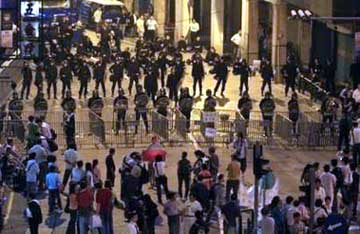
YouTube videos